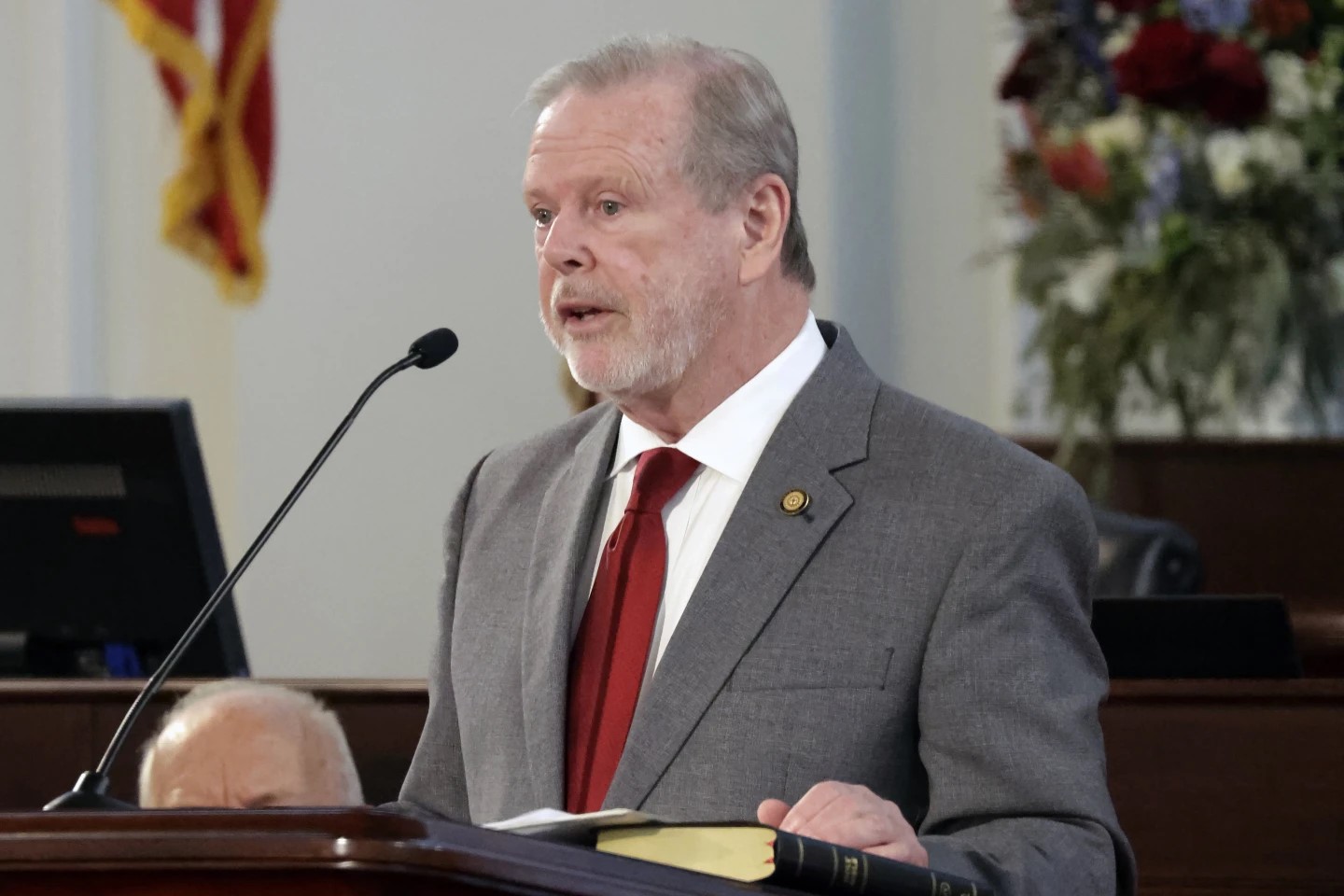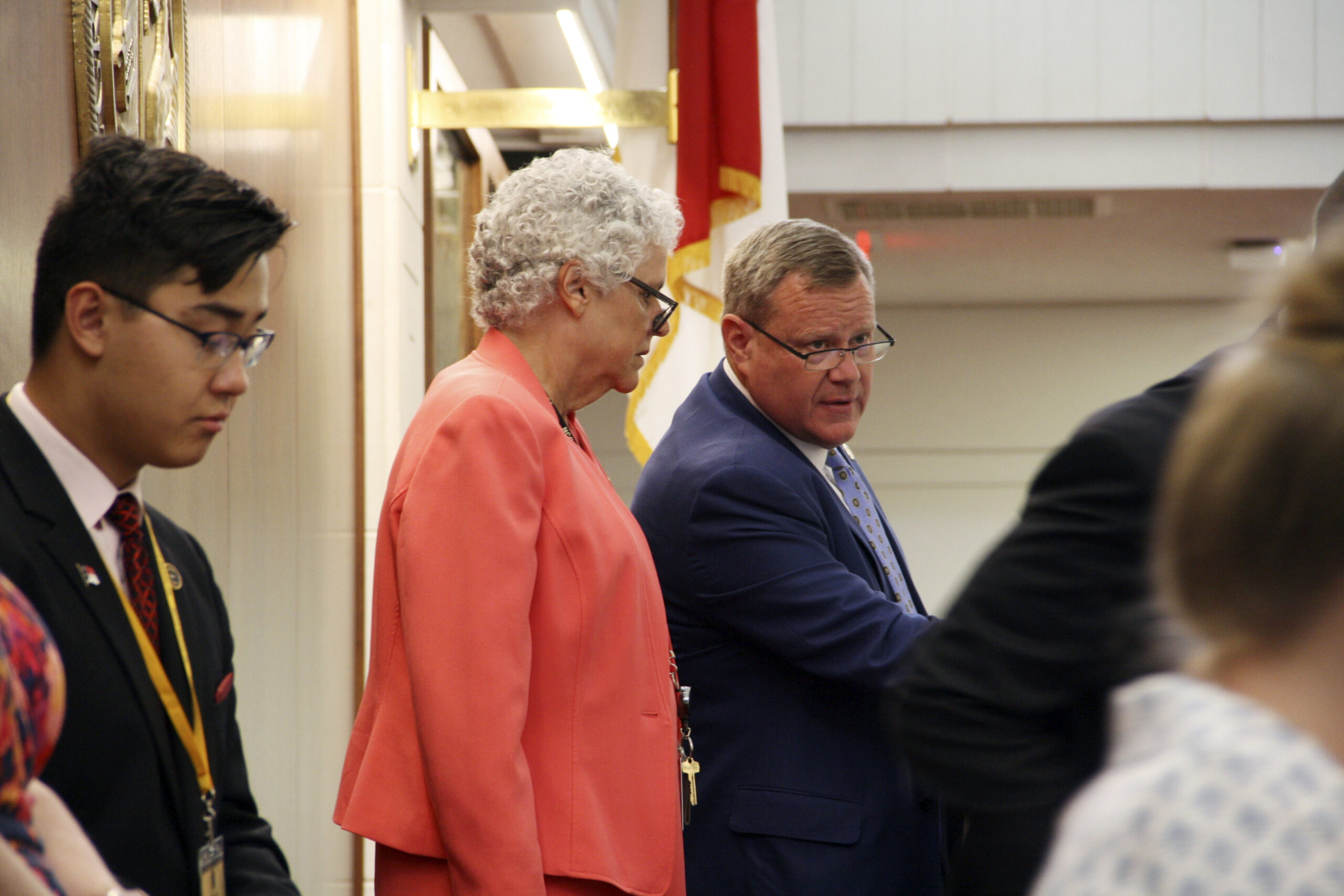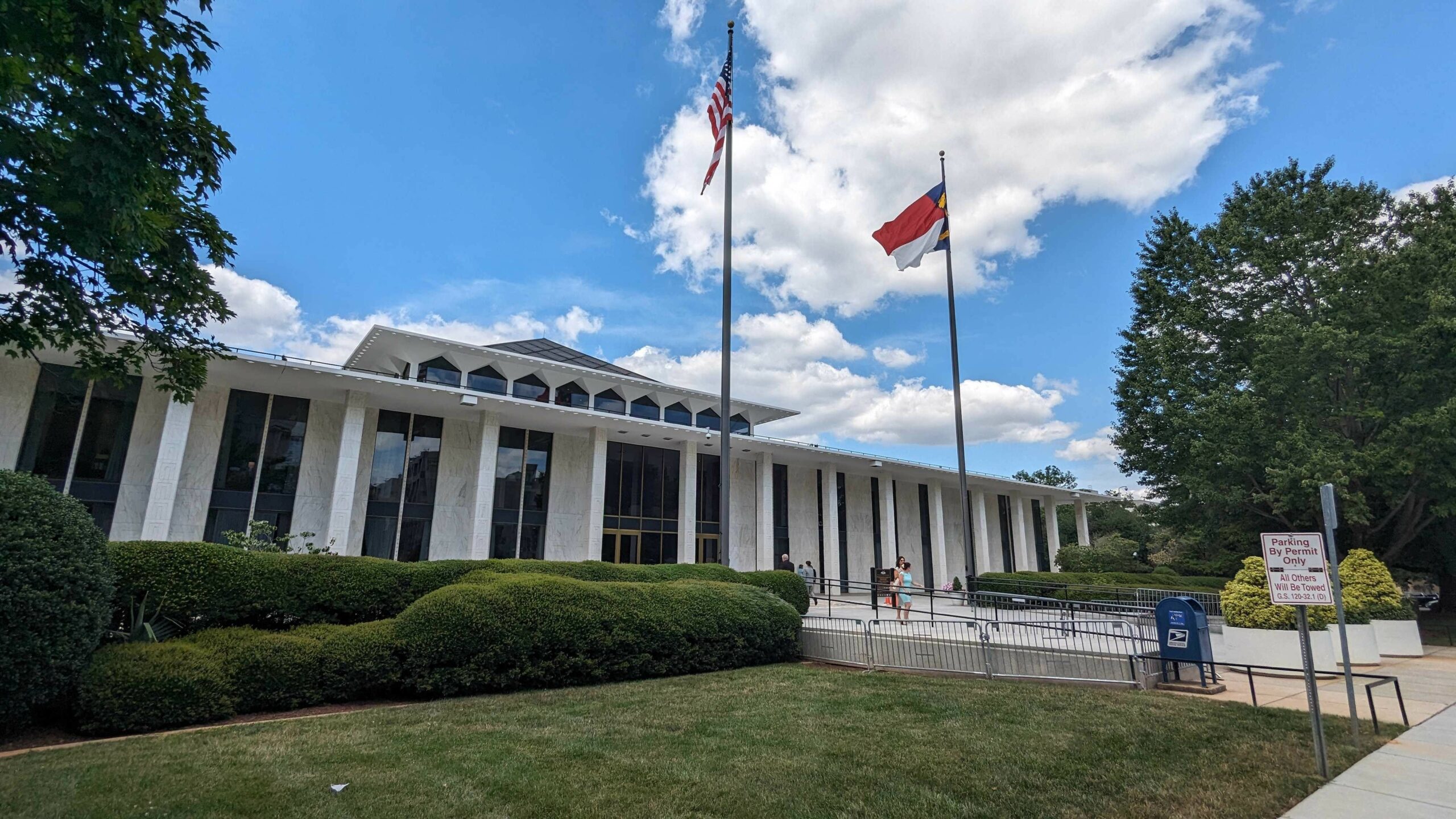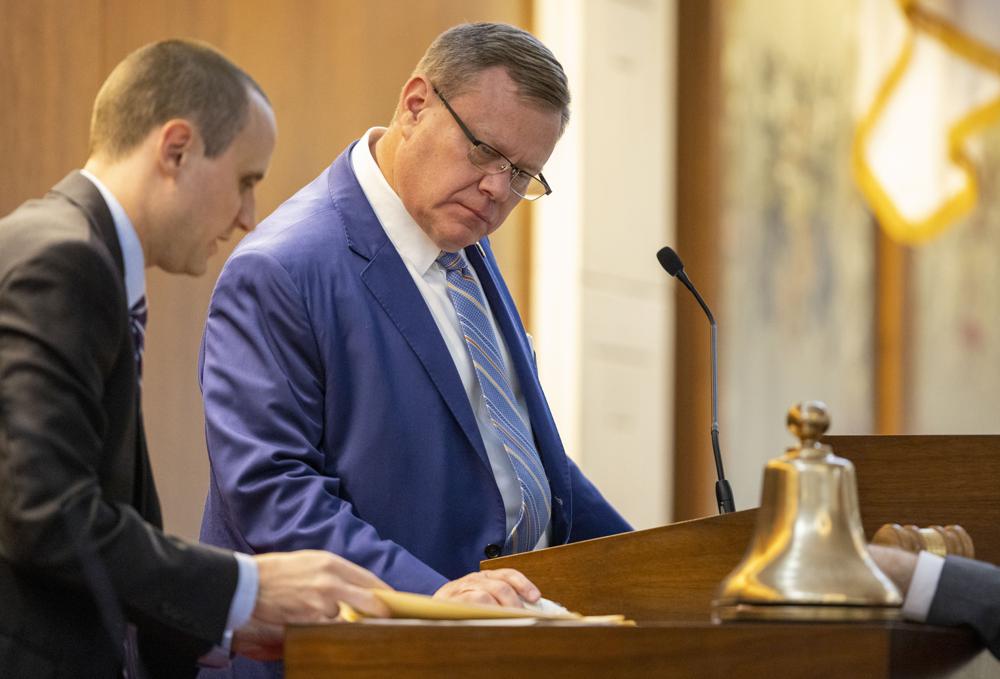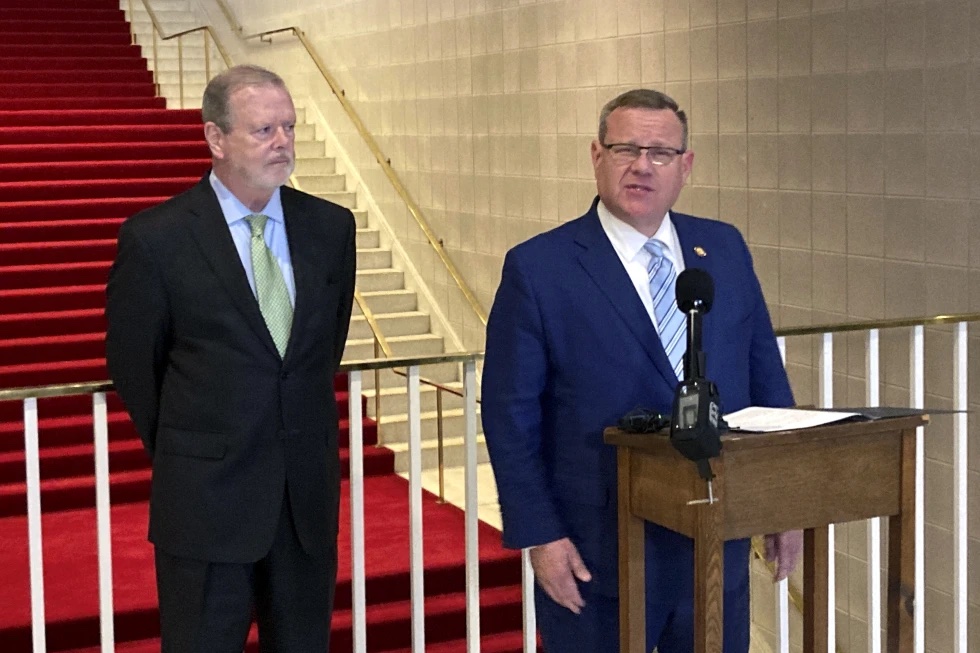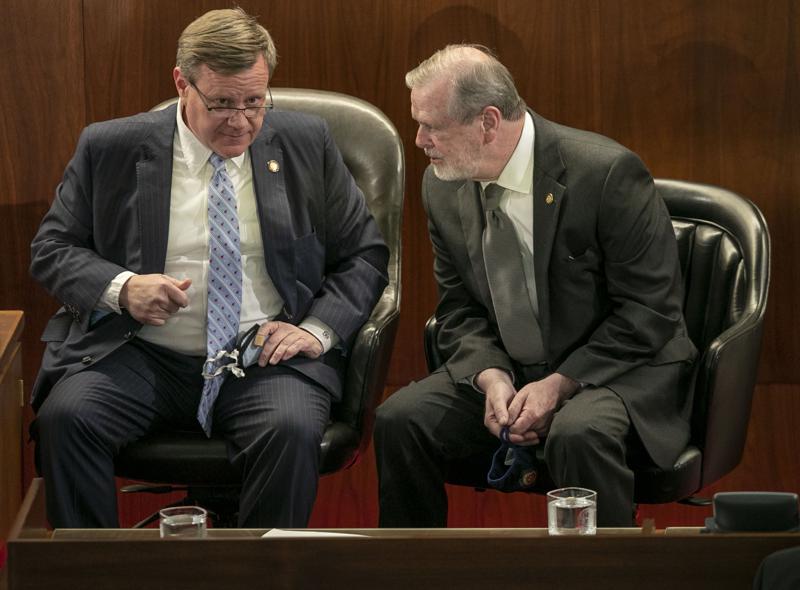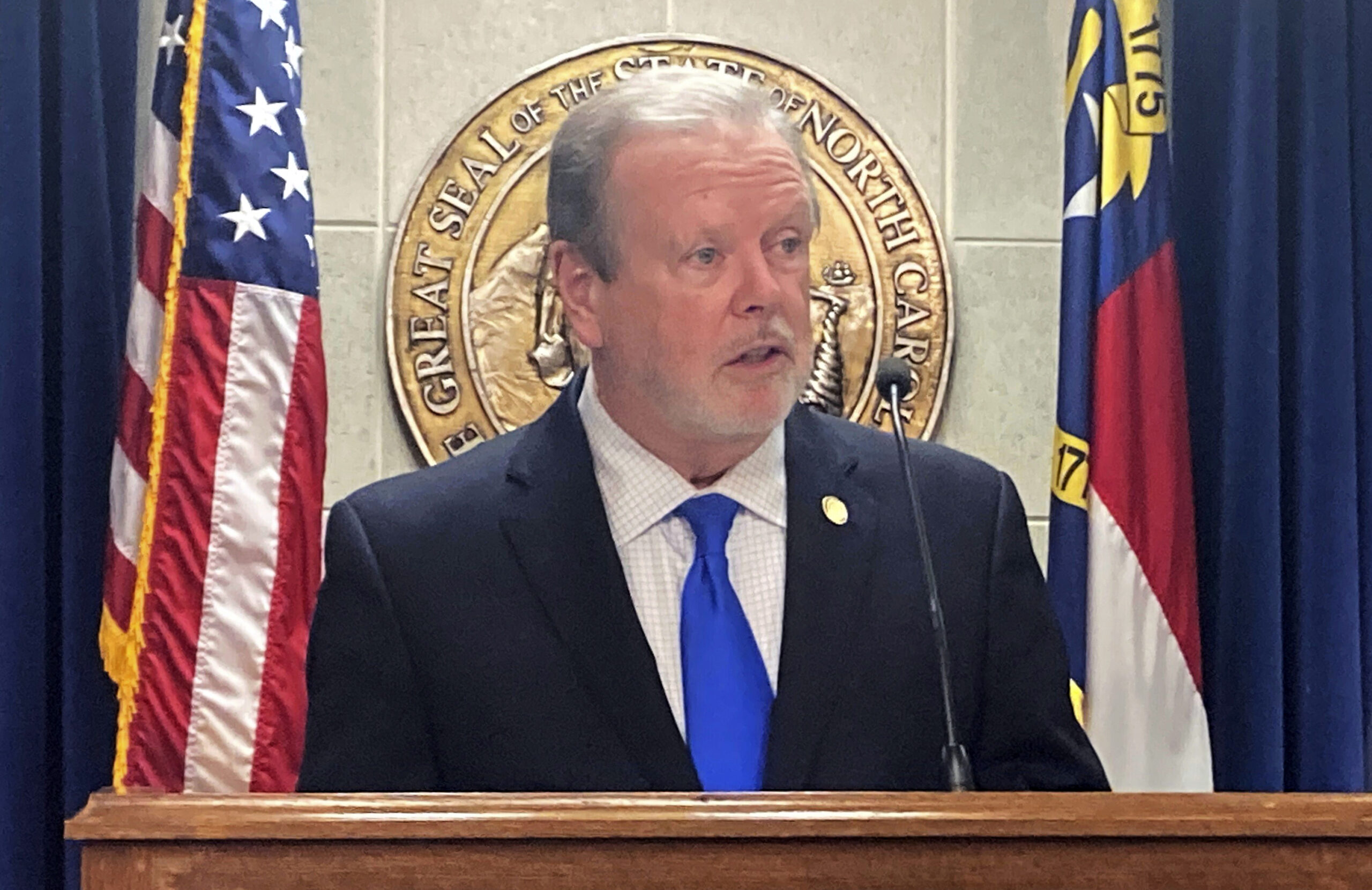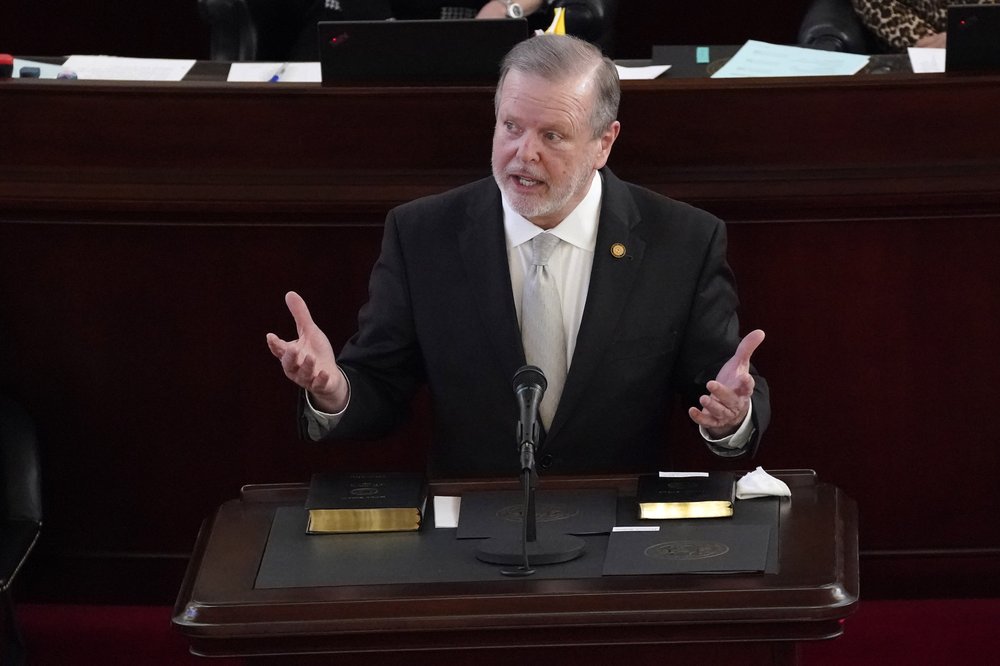While the longest federal government shutdown in the United States’ history garnered much attention across recent weeks, North Carolina’s government is facing its own operational roadblock. While the state is still functioning, it is doing so without a new comprehensive, two-year budget — becoming the last state in the nation to not pass one in 2025. Republican legislative leaders are in a deadlock over what to prioritize and include, leading to a stalemate that continues into its seventh month.
North Carolina District 23 Sen. and Democrat Graig Meyer joined 97.9 The Hill’s “This Morning with Aaron Keck” as the calendar turned to November to discuss the ongoing impasse and the impact both the state and federal slowdowns had on constituents. He also detailed his stance on Republicans pushing through another redistricting effort, participation in recent No Kings rallies and providing guidance while in a minority party.
Below is a transcript of the Oct. 31 interview, which has been edited for brevity and clarity. Listen to the full conversation here.
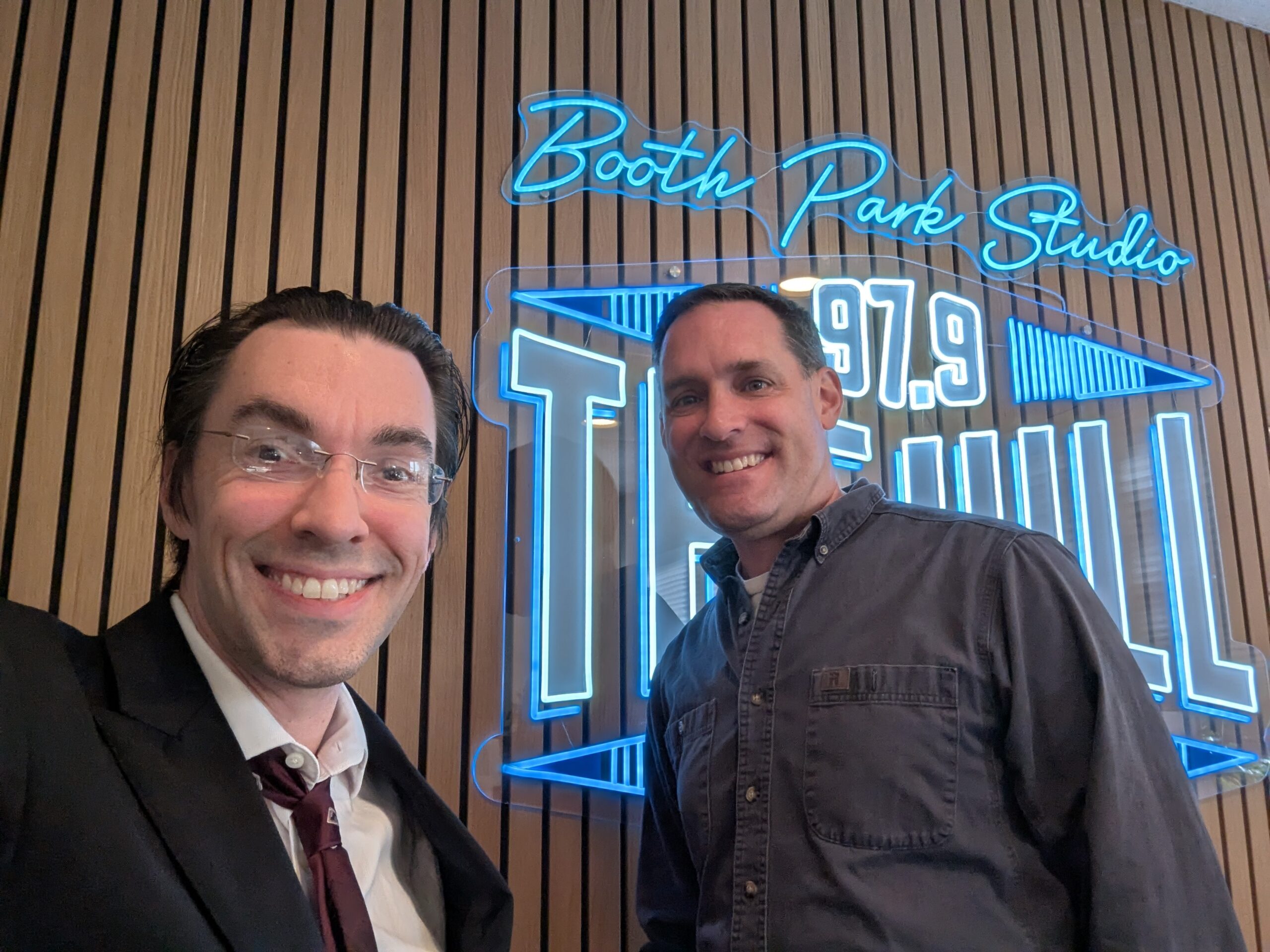
North Carolina Sen. for District 23 Graig Meyer in studio with 97.9 The Hill’s Aaron Keck. (Photo by Aaron Keck/Chapel Hill Media Group.)
Aaron Keck: Let’s start with the budget impasse. I was struck, and this has been ongoing for a while. You were in a few weeks ago, and we were talking about the exact same thing and not much has changed — except I was struck by the infighting just within the Republican party. The Senate Republican leaders were sending out press releases attacking the House Republican leaders and not even mentioning Democrats at all. It’s all in-fighting at this point, just between them, which is not something you ordinarily say.
Graig Meyer: In general, when we’ve had a budget impasse over the last eight to nine years, it’s been because the Republican legislature and the Democratic governor haven’t been able to agree, right? And so we’ve had a few times where we’ve had this type of stalemate. We’ve gone as late as December before, I think. But this is different because it’s the House versus the Senate, and it’s the Republicans. It’s hung up, as we’ve talked about before, over two big issues.
One is that the Senate Republicans want to eliminate the corporate income tax [and] bring the personal income tax down to 2%, which would create an ongoing structural deficit, meaning we wouldn’t have enough money to pay the state’s bills. The House is opposed to that. Then on the other hand, the Senate Republicans want to put a ton of money into some, what you might say, legacy projects for Sen. Phil Berger, including a big North Carolina Children’s Hospital project. And the House wants to put that money into things like teacher pay raises and no one is willing to give into the other side. Clearly, the new house speaker, Destin Hall, pledged that he would not give into the Senate the way the previous house speaker Tim Moore had consistently done. And so, he’s got his heels dug in. Phil Berger is the most powerful person in the state, so he wants to not give in. And I really think Governor [Josh] Stein has to show a level of leadership, step into the middle here and figure out some way to get people to the table and work towards a deal.
Editor’s Note: On Nov. 6, Gov. Stein called a special session of the North Carolina General Assembly on Nov. 17 with the goal of funding Medicaid efforts in the state and preventing rate hikes to customers. Both Destin Hall and Phil Berger confirmed they would not bring the issue to a vote, with Republican lawmakers not returning to the legislature.
Keck: What right now is the biggest impact of not having a budget deal?
Meyer: There’s a couple. [The first] is we don’t have a fully-funded Medicaid program. The governor’s administration has had to put in place some reductions to Medicaid reimbursements to providers. This has an impact to everyone in a few ways. One, [it] makes it harder for those providers to stay in business. You may see things like home healthcare or direct care for people with disabilities where some actually go out of business, because they work on such small margins and they’re not providing service. Number two: if their reimbursement is getting cut, even if they stay in business, they have to pay people less, do less services, whatever it is. In the end, there’s going to be turnover in staffing or there’s gonna be less service provided. It just gets really hard to take care of people.
But the third way that it’ll impact all of us is that if service providers, including big ones like UNC Hospital or UNC Health, want to offset the Medicaid cuts, they have to do that by increasing charges other places. It shifts the cost to the rest of us in what we pay for healthcare. UNC Health told me because of the Medicaid reimbursement cuts, they’re losing a half million dollars every 48 hours, every two days. Half million dollars adding up to $3.5 million a week…that’s big money. Even for an organization that is as big and has as much money as UNC Health does, that’s a lot. So you asked what are the impacts — that is one. The other one I would point out is, unfortunately, the state treasurer and the state health plan just increased the health insurance premiums for all state employees. That means there are a lot of state employees, teachers, and others who have not gotten a significant raise because there hasn’t been a budget. And because their health premiums went up, they’re going to take home less money this year than they did last year.
Keck: While that’s not happening on the state level, Republicans did get together very quickly to redraw congressional district lines. And they did that in spite of pretty widespread bipartisan opposition among actual North Carolinians left, right, and center.
Meyer: Right — everybody hates gerrymandering. Obviously the Republicans, based on what the Supreme Court and the North Carolina Supreme Court have done, feel they can get away with this mid-decade redistricting. And I think the process is terrible — was terrible — but I’m not as concerned about the process as I am about the impact. I mean, they did this so that they could reinforce a Republican congressional majority so that there would not be a congressional check on [President Donald] Trump’s authoritarian powers. And that’s going to come at a cost to North Carolinians. It’s going to mean Trump’s policies that are going to hurt your pocketbook are going to continue, Trump’s policies to inflict authoritarian cruelty are going to continue if they have their way and get enough Republicans to keep a majority in the U.S. House.
Keck: In the minority, in both the state and federal government, what do you do — and what do Democrats do to push back against that now?
Meyer: I mean, there was nothing we could do to stop the redistricting. The governor doesn’t have a say, he couldn’t veto it. It takes a simple majority, meaning the Republicans could pass it even if not all of their members voted for it — but they all did, of course. There’s nothing we could do. So, we have to use it as an opportunity to convey to the public who’s on your side and who’s not. That’s why I want to move it away from a process argument and really talk about impact. If you’re not happy with what’s happening with the federal shutdown, or the North Carolina budget impasse, know that these Republicans prioritized perpetuating the current conditions rather than solving the current conditions. It’s really the impact of how government works that matters to people. It’s what happens to your pocketbook, to your life, to the people that you love. And right now, North Carolina Republicans are fully on board the Trump train.
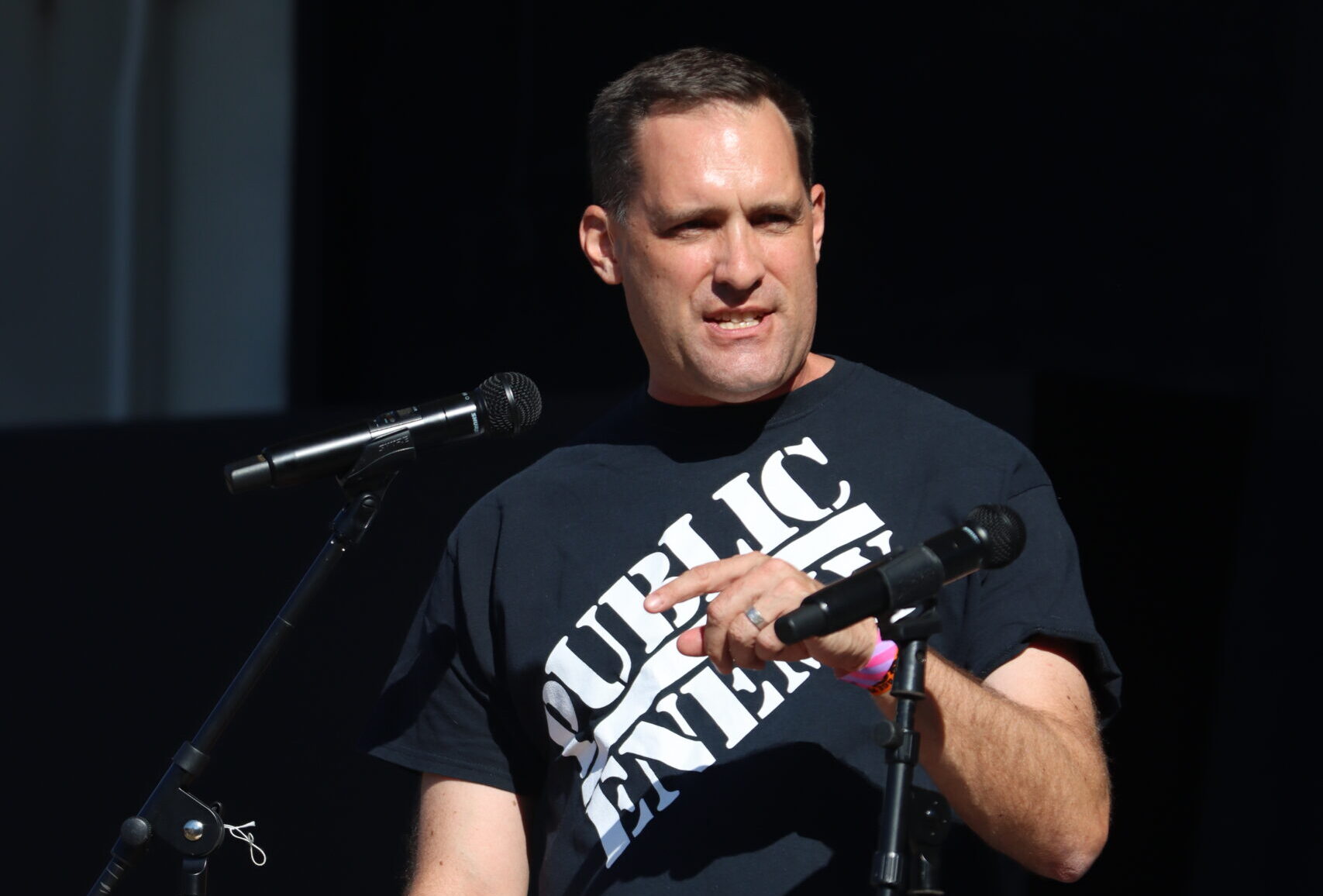
State Sen. Graig Meyer delivers a speech at Carrboro’s No Kings Day protest on Oct. 18, 2025. (Image via Matthew Clements.)
Keck: You’ve been out there pretty prominently speaking out on issues like this. The last time we talked was on the day of the No Kings rallies, of which you spoke at ones in Hillsborough and Carrboro. And you’ve been out on social media, out in public, pretty vocal about all these issues. What’s the reaction been? Is there an increasing reaction from people as we get further into this?
Meyer: I believe there is. I went to two of the No Kings events and paid attention to what was happening with them all over the state. And there was definitely an increase in participation and attendance. At both of the events I went to, there were so many people that people were leaving because they couldn’t hear the speakers, [or things like that]. I mean, that is an overwhelming sense that there’s a lot of people here who want to contribute. But those rallies, those those are energizing points in time, right? Like, ‘Let’s all get together, let’s see that there’s a lot of us, now let’s go do something.’ But what is the ‘do something’? That’s where I think you have to look for the next metrics. How many people are showing up at the organizing meetings of a group like Indivisible or Concerned Carolinians Hillsborough and helping them to figure out what the next stages are?
Right now, because of the SNAP cuts, I think that the immediate action that people should be taking is to provide direct care. Give money to the food bank, volunteer at PORCH. When people are hurt and they’re hurt by actions of their government, then providing direct care to those people is an act of political resistance. Let’s go out there and meet the people who are impacted, take care of them, and offer them an opportunity to speak up for themselves…to help them advocate for what they need and to get a government that serves them better. You have to have opportunities for more people to walk in your door, right? Well, feeding them is an opportunity to walk in the door. Now, you don’t harass people just because they came to get food — but if people are like, ‘This is messed up. I didn’t get my SNAP benefits this month, what can I do about it?’ And if you can answer that question for them, then you’ve just brought a new person into your movement. You lead by example…you give the opportunity, you welcome people.
Chapelboro.com does not charge subscription fees, and you can directly support our efforts in local journalism here. Want more of what you see on Chapelboro? Let us bring free local news and community information to you by signing up for our newsletter.

